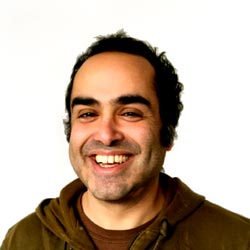Politics runs through the blood of Aung San Suu Kyi, the face of Myanmar’s pro-democracy movement.

Her father was the leader of Burma, the name for her country before if became known as Myanmar, when it was under British rule, and her mother was appointed ambassador to India in 1960.
But the impact she would have on her homeland, and the symbol of hope, democracy and freedom she represents around the world could never have been expected.
She has spent years fighting a dictatorship from the confines of her home while under house arrest, and her peaceful battle has seen her party, the National League for Democracy (NLD), come to power.
Her dedication through hardship and heartbreak led to her becoming a beacon of hope across the globe, recognised when she was awarded the Noble peace prize in 1991.
The freedom fighter, who would become known as The Lady – also the title of Luc Besson’s film chronicling Suu Kyi’s life and struggles – was born in 1945 in Yangon. Her father Aung San was the nation’s de facto leader, who negotiated the country’s independence from the British Empire in 1947.
However, that same year, he was assassinated by political rivals, leaving Suu Kyi and her two brothers to grow up with her mother.
From a young age, Suu Kyi was exposed to diverse views on politics and religion which shaped her beliefs and convictions.
She was educated in Burma, India, and the United Kingdom and studied at Oxford University. She met her husband in Britain and had two children. The family spent the 1970s and ’80s in England, the United States and India. In 1988, Suu Kyi returned to Burma to care for her dying mother, and her life took a dramatic turn.
In 1962, military commander U Ne Win had staged a coup d’état, leading to protests over his controversial policies, which were often violently suppressed. Mass independence and democracy protests followed his resignation as party chairman in 1988, when he handed power to a military junta. But the dictator remained behind the scenes to orchestrate violent responses to the continuing protests.
Upon returning home, Suu Kyi saw the plight of her country and through the NLD spoke out in favour of democracy. She was soon placed under house arrest. It did not stop her party winning 59% of the national votes and 81% of the seats in Parliament in 1990. But the dictatorship never recognised the results of the election, and refused to hand over power.
Suu Kyi remained under house arrest in Burma for almost 15 of the 21 years from July 1989 until her most recent release in November 201, becoming one of the world’s most prominent politicians in the process.
Suu Kyi was told she was free to leave the country but knew the government would never allow her return. She was unable to travel to Norway to collect her Noble Peace Prize, and more tragically, to be by her husband’s side when he died of cancer in London in 1997. She went years without seeing her children.
“I don’t believe in people just hoping,” she said.” We work for what we want. I always say that one has no right to hope without endeavour, so we work to try and bring about the situation that is necessary for the country, and we are confident that we will get to the negotiation table at one time or another.”
And explaining why she continued her fight at such a high personal cost, she added: “You should never let your fears prevent you from doing what you know is right.”
We work for what we want. I always say that one has no right to hope without endeavour
It is five years since she has been free from house arrest. Since then the NLD has continued its ascent to power. In the 2015 general election her party ousted the military-backed party that had been in power for five years, receiving enough votes to ensure that its preferred candidates will be elected president and vice president.
The constitution bars her from presidency, but Suu Kyi has vowed to be the country’s leader by proxy. She will even work with the military, which has a quarter of the seats in parliament.
It is a remarkable turnaround for the fortunes of a remarkable woman. She has upheld the right for democracy and worked relentlessly for human rights and the freedom of Burmese people against military rule. She has dedicated her life to securing freedom and democracy and has done so by using non-violent means.
It would be unfair to call her a reluctant revolutionary. But The Lady who returned home to look after her sick mother and went on to become the accidental revolutionary, is now leading her country into a brave new era.




